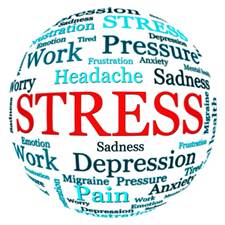Fighting stress

The 1990s will be remembered for giving us the Teletubbies and stress. After the workaholism of the eighties, stress-related illness broke into our vocabulary and our workplace. Along with repetitive strain injury, cases of stressed-out workers made headline news and the western world became more aware of the physical dangers of overwork.
And yet the millennium has seen no let-up in work strain. In May 2000 the Health and Safety Executive (HSE) published research estimating that 5 million workers in Britain suffered great or extreme stress in their jobs. Facing increasing competition in the global marketplace, corporates tend towards decreasing human resources while increasing the workload for those who remain. The onset of electronic messaging and mobile technology has exacerbated stress levels, and in Japan a word has even been coined – ‘karoshi’ – meaning ‘death by overwork’.
The major problem is that while people are attuned to the danger of stress, some fail to recognize the symptoms and most don’t treat it effectively. It is easy to feel that stress is an unavoidable part of work, and to ignore the early warning signs – headaches, anxiety, indecisiveness and tiredness. If untreated, they can lead to further health risks, such as coughs and colds, stomach disorders, shortness of breath, and eventually high-blood pressure or mental health disorders such as depression.
There are numerous de-stressing techniques available, but sometimes the simplest are the most effective. Regular exercise is important, as is a balanced diet – on the 22 January 2001 researchers from the University of Pittsburgh reported strong evidence that tension and nerves weaken the immune system. Dr Sandi Mann, author of Psychology Goes To Work, suggests keeping a stress diary, and work out what events are triggering your stress; it may be that you are your own worst enemy, running yourself ragged or fighting too many battles.
While finding personal ways of relaxing is an important part of the solution, stress is something that also needs tackling at its source. Time management is key, as is time off. The HSE report brought to the public attention the frequently overlooked fact that social frameworks within an office can affect stress levels, for good or for bad. The major causes of anxiety at work are psychological, lack of self-esteem and a perceived lack of control being two significant contributors. An unsupportive environment can be a stressful environment, and those feeling isolated or overworked should approach their managers or their HR department. However, most experts agree that when stress has become a health-risk, finding a new job is often the best solution.